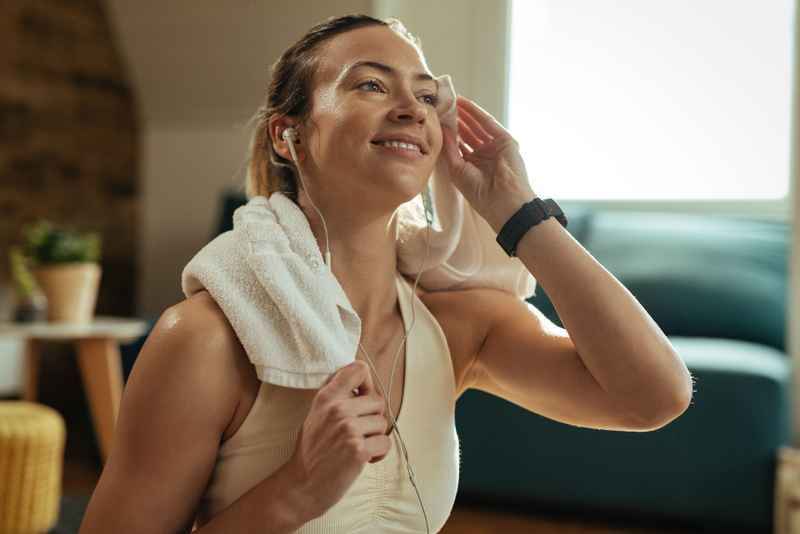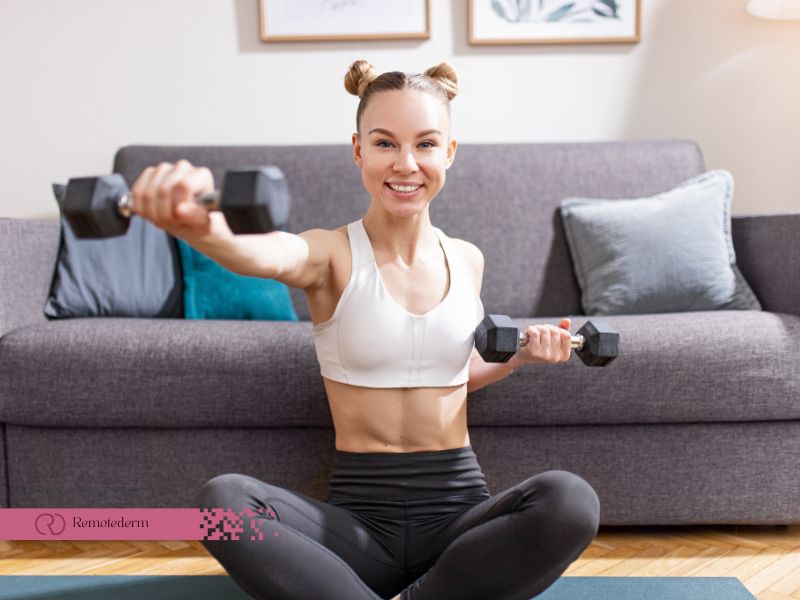In the pursuit of acne-free skin, the intricate relationship between exercise and acne garners attention for its potential dual impact on dermatological health—a topic of equal interest to fitness enthusiasts and medical professionals in Canada. This article delves into how regular physical activity might be both advantageous and detrimental when it comes to managing acne. Does a rigorous exercise routine lead to clear skin, or is it a contributing factor to acne flare-ups? Through scientific investigation and the dismantling of popular misconceptions, we seek to uncover the genuine interplay between exercise and acne, determining whether an active lifestyle is the secret to overcoming acne in Canada.
The Exercise and Acne Debate Unveiled
Acne is a common skin condition that affects the hair follicles. It is caused by the clogging of oil and dead skin cells in the follicles, which can manifest in various forms. There are several treatments available for acne, such as oral antibiotics, systemic treatments, topical products, and even laser treatment. If you have skin pimples or red, painful bumps on your skin, you may want to consult with an online dermatologist to determine the best treatment option for your specific case.
The relationship between physical activity and skin health has long been a subject of speculation and scientific inquiry. Does working up a sweat help clear the skin, or does it invite a breakout?
Understanding the Dynamics
To unravel the mystery behind exercise and acne, it’s crucial to comprehend the intricate dynamics at play. Exercise, a cornerstone of well-being, triggers a series of physiological responses within the body. The impact on the skin is profound from increased blood flow to heightened perspiration. Such responses can stimulate detoxification processes that may promote skin health. Nevertheless, it’s essential to consider the type of exercise and the environment, as these factors can also influence skin responses.

Does Exercise Help Acne?
One of the burning questions in this realm is, “Does exercise help with acne?” The answer is nuanced. When done in moderation, exercise can enhance blood circulation, ensuring that skin cells receive a rich supply of oxygen. This, in turn, contributes to a healthier complexion. Yet, it’s pivotal to maintain proper hygiene post-workout to prevent bacterial growth that could provoke breakouts. Additionally, choosing workout apparel is important, as breathable fabrics reduce the risk of sweat trapped against the skin.
The Science Behind Exercise and Skin Health
The interconnectedness between regular physical activity and the condition of our skin is a topic that has piqued the interest of many in the fields of dermatology and sports medicine. This section aims to provide insights into the physiological mechanisms underlying the benefits of exercise and how incorporating it into daily life can improve skin health and potentially reduce the prevalence of conditions like acne.
Sweating it Out
Sweating is often considered a natural detoxifier for the skin. When we engage in physical activities, our body expels toxins through sweat, promoting a cleansing effect. This mechanism can aid in preventing acne by eliminating impurities that might otherwise contribute to skin issues. Moreover, the act of sweating can open up pores and flush out accumulated dirt and oil, though it’s important to cleanse the skin properly afterwards to prevent the reabsorption of these impurities. Sweating also raises skin hydration levels, which can prevent dryness and keep the skin barrier functioning effectively. However, for individuals with certain skin conditions like eczema or rosacea, excessive sweating may sometimes exacerbate symptoms, which makes the post-workout skincare routine just as critical as the exercise itself.
Hormonal Harmony
Another crucial aspect of the exercise-acne relationship is the regulation of hormones. Exercise has the power to balance hormonal levels, reducing the likelihood of acne flare-ups. Cortisol, a stress hormone, decreases during physical activity, mitigating one of the potential triggers for acne. Furthermore, regular exercise can also increase the production of endorphins, often termed ‘feel-good’ hormones, that can also have beneficial effects on the skin’s appearance and vitality. In addition, exercise-induced hormone modulation can contribute to reducing the skin’s oil production, which is often driven by androgens that are known to trigger acne. While these hormonal shifts present a compelling case in favour of exercise as a treatment for acne, it is still important to maintain a holistic approach, considering a diet, genetics, and other lifestyle factors that might play a role in skin health.
Debunking Common Myths
In an age where wellness advice can be as trendy as fashion, it’s easy to get caught up in the latest skincare lore without substantial evidence to back it up. This section aims to dismantle some of the widely accepted yet unsupported beliefs related to exercise and its impact on acne. By holding these assertions up to the scrutiny of scientific research and expert opinion, we can discern the actual factors that influence our skin’s health in the context of physical activity.
1. Showering Post-Workout
A prevailing misconception is that exercise-induced sweat directly leads to acne. However, proper post-workout hygiene, including a thorough shower and cleansing routine, can negate this concern. Neglecting this step, on the other hand, may indeed pave the way for acne.
2. The Role of Diet
While not the primary focus, it’s essential to touch upon the role of diet in tandem with exercise. A well-balanced, nutrient-rich diet complements the benefits of exercise in promoting skin health. Incorporating foods with anti-inflammatory properties can further aid in preventing acne.

Addressing Concerns
In the digital age, accessing reliable information about acne treatment is paramount. An emerging trend is the availability of online acne prescription services offering a convenient and efficient way for individuals to seek professional advice and receive prescribed treatments without leaving the comfort of their homes. Using Remotederm online dermatology platform streamlines the process of getting a prescription, making it possible for patients to manage their acne with the expert guidance of a dermatologist, all facilitated through the internet.
Final Thoughts
The symbiotic relationship between exercise and skin health underscores the importance of lifestyle balance in the quest for clear skin. While physical activity promotes blood flow and hormone regulation that can enhance our complexion, it must be paired with good post-workout hygiene and thoughtful dietary choices to truly be effective against acne. Sweat can serve as a means of purifying the skin, provided it’s followed by a proper cleanse to prevent bacteria from contributing to breakouts.
In wrapping up our exploration, it’s clear that movement, nutrition, and skin care are the triumvirate keys to unlocking the door to healthier skin. The rise of digital health services aids in supporting our journey, but they augment rather than replace the need for a holistic and informed approach to our daily habits. It’s in the harmony of these elements that we find the path to not just a healthier body but also to the radiant, acne-free skin we seek.
FAQs
Can wearing makeup during exercise exacerbate acne issues?
Wearing makeup during a workout can clog your pores, especially as sweat increases, potentially worsening acne. It’s recommended to use non-comedogenic products or to exercise with a clean face to minimize this risk.
How does over-exercising affect acne?
Over-exercising can elevate cortisol levels — even though exercise typically reduces this stress hormone — potentially leading to hormone imbalances that may trigger or exacerbate acne. It’s important to find a balanced exercise routine to maintain healthy skin.
Are there specific exercises that are better or worse for acne-prone skin?
There isn’t conclusive evidence pointing to specific exercises that worsen or improve acne. However, high-intensity workouts that cause excessive sweating without proper hygiene might aggravate acne, and it’s advisable to cleanse the skin soon after such activities.
Is it necessary to change your skincare routine on days you exercise?
It may be beneficial to adapt your skincare routine on exercise days, with a focus on removing sweat and bacteria post-workout. Using gentle, non-irritating cleansers and lightweight, non-comedogenic moisturizers can help manage exercise-induced acne.
